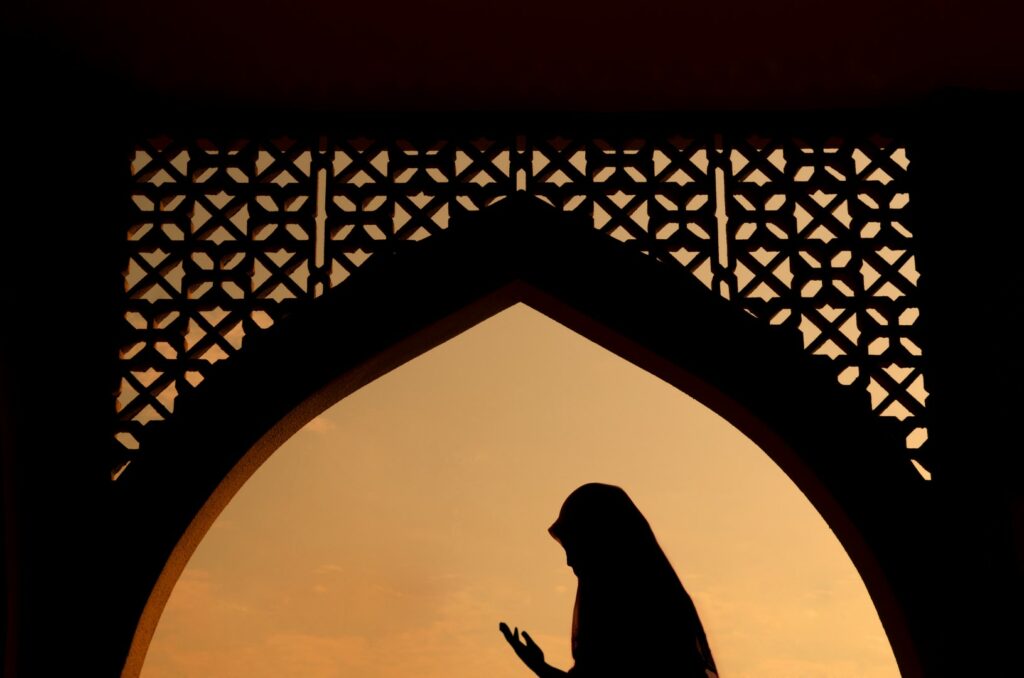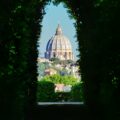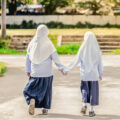Here is our common ground: Insights of a Muslim theologian in Germany
Here is our common ground: Insights of a Muslim theologian in Germany
What are the most pressing questions facing Muslims in Europe today? Analyst Clémence Sauty interviewed Pr. Ufuk Topkara to find out!
This weekly comment was written by Clémence Sauty and reflects her personal analyses and opinions, rather than those of EARS.
Dr. Ufuk Topkara is an expert in Muslim-Jewish dialogue. As a Muslim scholar, he holds a seminar called ‘Abrahamic encounters’ at the Humboldt University in Berlin, together with Dr. Karma Ben Johanan, a specialist in Jewish-Christian relations. Years after they co-created it, the course still remains cutting edge. The course challenges us with the question: how can Jews, Muslims, and Christians successfully find common ground in Europe, today?
I would personally argue that any encounter starts with the attentive ear, or eye. The words of others, within our own tradition or within another one, crucially matter. For this reason, I am happy to share with you the interview I had with Dr. Ufuk Topkara on January 28th, 2022.
Clémence Sauty: Would you like to introduce yourself?
Ufuk Topkara: I studied history and philosophy at the Humboldt University in Berlin. In my master thesis, I tackled the historical persecution of the German Jews and their reaction to it.
During my studies, I worked at the Jewish museum in Berlin as a tour guide. I helped introduce a tour that compared Islamic and Jewish traditions and cultures. We wanted to fill a gap by sharing narratives and stories about the other religion. The tour was immeasurably successful! It was one of the most booked tours in this museum since it had opened its gates. The comparison between Judaism and Islam sparked great curiosity.
The tour was especially fascinating for school classes. Muslim pupils could see themselves represented in a public space. They could be experts and identify positively with their own culture and tradition. For that to happen in the Jewish museum was a very rewarding experience.
I wrote my PhD in Islamic theology afterwards. This time, I chose a Catholic theologian to supervise it. I have always maintained that interreligious perspective since. Having someone from a different religion working with me and asking questions is part of my thought process.
CS: What drew you to studying Jewish and Muslim traditions?
UT: I really just follow my curiosity. What I deem fascinating for myself may be extremely boring or irrelevant to somebody else. Yet, I cannot do anything else but follow that curiosity and my passion.
There were instances when I wondered why, if Judaism and Christianity are so visibly prominent in the Quran, so little of that translates into day-to-day Muslim practices. For example, my favourite narrative in the Quran is that of the son of Jacob: Joseph. It made me curious about Judaism and its connection with Islam.
In the past, it was totally accepted that Jewish theology would be introduced into Muslim thinking. And the interest was mutual! If such dialogues happened in the past, where did these religious traditions separate? Reaching towards the other traditions is part of our common tradition.
CS: What do you want to bring into the discussion about Islam in European society?
UT: My most recent research project deals with religion and reason. I study the work of Jewish philosopher and theologian Hermann Cohen.[1] In his book ‘Religion of Reason, Out of the Sources of Judaism’, Cohen suggested that Judaism can sustain both religious and rational scrutiny. That was a draft of ‘religion of reason’, a religion that can hold itself against the arguments of philosophers. Similarly, I am learning from Cohen’s method, in order to see if it can be applied to Islam. Will I be able to showcase the same rational understanding of Islamic sources?
Besides, by engaging with Cohen, I hope to understand how the relation between the minority and the majority works. German Jews have been continuously depicted as ‘the other’ and continuously discriminated against, all while they were part of Germany. Likewise, German Muslims have been made to be both insiders and outsiders. Many Muslims are born and raised in Germany, they have German citizenship, and yet they are seen as somewhat alien, somewhat strange, somewhat different.
Muslims in European societies have to make sense of this ambivalent position. They furthermore need to develop their theologies and worldviews. For those who are not put in that position, it is almost impossible to understand the personal and intellectual implications.
That is what I am trying to bring into the discussion. I hope that I will be able to make Islam and Islamic traditions available to not just Muslims, but the society at large. Because there is a very specific contribution to ongoing societal debates.
CS: What do you mean by the ‘specific contribution’ of Muslims within European societies?
UT: I think that Muslims are at a crossroads right now. We have been in the spotlights of debates for around twenty years, over and over again. Muslims have been at the forefront of many discussions: some painful, some damaging, others helpful.
I am asking: where is the vision for the Muslim community in the future European context? Who are we? Who do we want to be? What are we conveying to our children? Where do we see them, twenty years from now?
What is the Muslim community going to contribute to society at large? What can we offer, to help with the global challenges that we face as humanity? How can we grow to relate to global issues, not just issues that we ourselves are facing? How can we help accomplish ideals that could help us grow as a society, whether it be justice, economic prosperity, economic equality, equal rights, and the empowerment of women and minorities?
We cannot put these pressing questions aside anymore. I believe the point has passed. We have to develop a sense of urgency. Not necessarily come up with answers overnight, but get in the process of tackling those issues. As Muslims of all social backgrounds, we need to become aware that we need to place ourselves as part of the discourse, not outside of the discourse.
CS: Could you pinpoint the difficulties and rewards of working to renew the understanding of Islam in European societies?
UT: I have come to understand Islam as ‘submission to God’. The acknowledgement of God, of Creation, and of living in relationality is indeed central to me. Islam is a relationality and a belonging to the entity who created everything, and a relationality and belonging among individuals. For me, it is also a relationality and belonging to anyone who submits themselves to God.
This interpretation exists in the Muslim tradition. Many believe that ‘Muslim’ does not just mean ‘those who follow Islam’ but anyone who acknowledges God. And I do see myself partially in that. I do want to contribute to that understanding.
Some people are more critical about it, which is legitimate. I am only one voice. But I am not ‘the voice of Islam’. I see value in contributing. For my part, I do want to emphasise what I share and what I have in common with the other two monotheistic traditions. And this is, likewise, legitimate.
The beauty of Islam, in my eyes, is this capacity to embody the richness of plurality and the diversity of opinions and convictions.
CS: A great thank you to Dr. Ufuk Topkara for sharing his insights with me! This interview will be followed by an article on the Fatima mosque, which represents the diversity of Muslim faiths in France.
This weekly comment was written by Clémence Sauty and reflects her personal analyses and opinions, rather than those of EARS.
Interested in similar topics? Go to our Dashboard and receive free updates.





